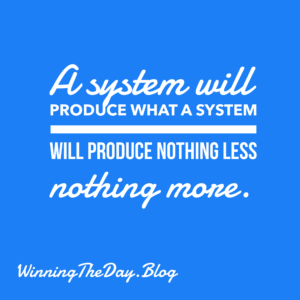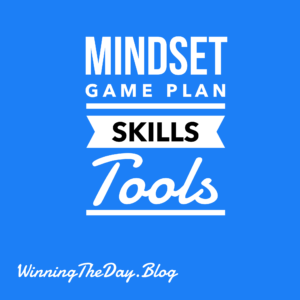The story of Nike isn’t just about shoes; it’s a story about the power of mindset, game plan, skills and tools combined with some collaboration and accountability
Four Elements To Create Any Outcome
Mindset – Game Plan – Skills – Tools
Phil Knight, a middle-distance runner at the University of Oregon, held a unique mindset that set him apart from the conventional athletic shoe industry. He firmly believed in the necessity of producing high-quality, affordable running shoes, a conviction that fueled his unwavering ambition. This belief wasn’t a solitary conviction; it was nurtured and strengthened through his collaborations with individuals who shared his vision, particularly his former track coach, Bill Bowerman.
Knight’s game plan started with a simple yet revolutionary idea: importing running shoes from Japan. This wasn’t a solo mission; he partnered with Bowerman to establish Blue Ribbon Sports, the precursor to Nike. This partnership proved to be the cornerstone of their success, emphasizing the significance of collaboration. Their relationship went beyond mere business; they held each other accountable for their individual contributions and the company’s overall progress.
Knight and Bowerman, each with unique skills, formed a formidable partnership. Knight, with a background in business, particularly in sales and distribution, complemented Bowerman’s innovative coaching approach. Bowerman’s relentless pursuit of enhancing athletic performance through shoe design, coupled with Knight’s business acumen, created a synergy that would have been unattainable if they had worked independently. Their partnership not only fostered a strong bond but also instilled a deep sense of accountability. Knight, responsible for overseeing business operations, ensured focus and maximized their strengths, while Bowerman dedicated to product development and innovation.
This clear division of labor allowed them to concentrate on their respective areas of expertise, ultimately leading to their success.
Their initial tools were humble: limited capital, a handshake agreement with Onitsuka Tiger (a Japanese shoe manufacturer), and a shared passion for running. However, their most valuable “tool” was their collaborative partnership. The accountability they maintained with each other propelled them through challenges and setbacks. They set high standards for themselves and provided mutual support and encouragement. As the company expanded, they continued to prioritize collaboration, building a team of talented designers, marketers, and engineers. This collaborative spirit extended beyond internal teams to encompass athletes and other partners. The internal accountability structure also evolved, with clearly defined roles, responsibilities, and performance metrics.
The success of Nike isn’t solely a tale of individual brilliance; it’s a narrative about the potency of mindset, game plans, skills, and tools, all complemented by collaboration and accountability. Knight’s initial vision, coupled with Bowerman’s innovative drive, forged a formidable force. However, it was their remarkable ability to collaborate, hold each other accountable, and cultivate a collaborative culture that truly propelled Nike to become the global icon it is today..
Read more about it: Shoe Dog: A Memoir by the Creator of Nike.





